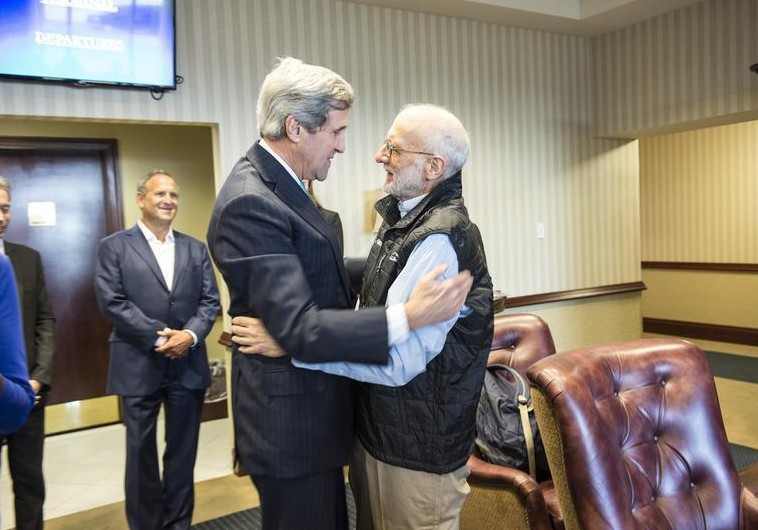
Analysis: Alan Gross put Cuba’s Jews in awkward position
With the benefit of hindsight, we know that Gross was not operating on behalf of the CIA. Nonetheless, his activities violated Cuban law.
The activities of American Jew Alan Gross, who was released from prison by Cuban authorities three weeks ago, put the Cuban Jewish community in a precarious position, jeopardizing its relations with the Castro regime.
Gross was arrested at Havana airport five years ago and was subsequently sentenced to 15 years in prison for “actions against the state.”
For years, Gross worked in the area of international aid and development as an employee for U.S. companies abroad. As part of his job description, Gross often traveled overseas, including to Middle Eastern countries like Iraq. Just prior to his arrest, Gross worked as a subcontractor for USAID, helping to install communications equipment for various organizations.
This was also the purpose of his trip to Cuba – he was sent to the island nation as an independent subcontractor for an American company that was doing work on behalf of USAID.
In line with U.S. policy at the time, his job was to undermine the communist regime in Cuba and to help nongovernmental organizations and dissidents of the government to evade detection by authorities who closely watch and listen to all communications on the island.
In 1996, Congress passed the Helms-Burton Act, designed to bolster the American embargo against Cuba that had been in place since the rise of Fidel Castro.

The law includes a number of clauses designed to spur “a peaceful transition to representative democracy and a market economy” in Cuba. In helping to advance a policy which for all intents and purposes is aimed at toppling the ruling government in Cuba, Congress budgeted $20 million per year.
Development Alternatives, the contracting company that employed Gross, received a $6 million contract from USAID.
Gross himself earned a salary of $500,000 for his efforts.
During a five-month period in 2009, he flew four times to Cuba on a tourist visa, smuggling into the country a range of sophisticated communications equipment that included smartphones, computers, satellite devices, and an advanced chip used for espionage purposes.
In late 2009, when he tried to enter Cuba for fifth time, he was arrested. The Cuban authorities accused him of spying for US intelligence.
The Obama administration, his attorneys, and his family denied the charges. In 2011, Gross was sentenced to 15 years in prison.
With the benefit of hindsight, we know that Gross was not operating on behalf of the CIA. Nonetheless, his activities violated Cuban law, which forbids smuggling of the kind of equipment that he had in his possession. Gross may or may not have been guilty of espionage, but he certainly was negligent and careless.
He claimed that he was bringing the equipment to help Cuba’s Jewish community.
It later emerged, however, that the community was not in need of such assistance.
The Jews of Cuba number 2,000 people, most of which live in the capital. Havana is home to a number of synagogues, and Cuban Jews enjoy complete freedom of worship.
Jewish ties with Fidel Castro were good, and they remain positive with Castro’s successor, his brother Raul. The Jews of Cuba are free to emigrate.
They are permitted to make aliya, if they so choose.
Since 1992, the American Jewish Joint Distribution Committee has maintained close ties with the Cuban Jewish community. It has provided economic assistance to the elderly while helping to preserve Jewish heritage on the island.
Not only did Gross’s alibi create difficulties and cause embarrassment for the Jewish community in Cuba, but it could also have adversely impacted Jewish communities in countries whose governments are hostile to the U.S.
The Gross case could have led foreign governments to suspect that the Jews in their midst who have ties with Jewish organizations in the U.S. are acting as emissaries for American espionage.
From this standpoint, Gross and his handlers’ behavior could only be described as totally irresponsible.
When I contacted Alan and his wife Judy Gross in hopes of asking them a few questions – namely whether they have any regrets about their activities or whether they believe it caused damage to the Jewish community in Cuba – they refused to comment. Instead, they referred me to a public relations handler, who offered very little.
(From The Jerusalem Post)
[U.S. Secretary of State John Kerry (L) embraces Alan Gross in the Reuters photo above.]

